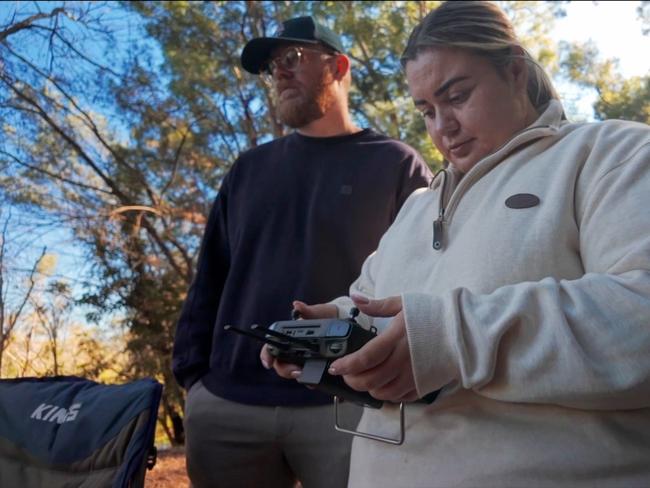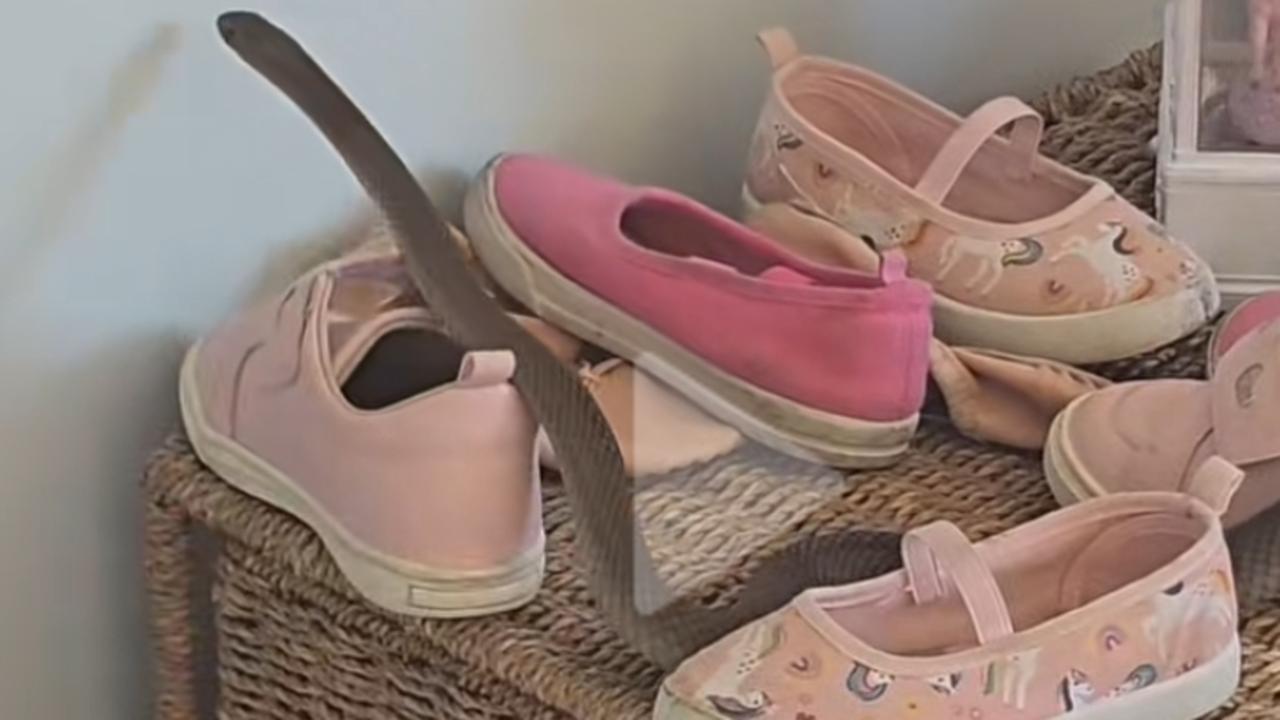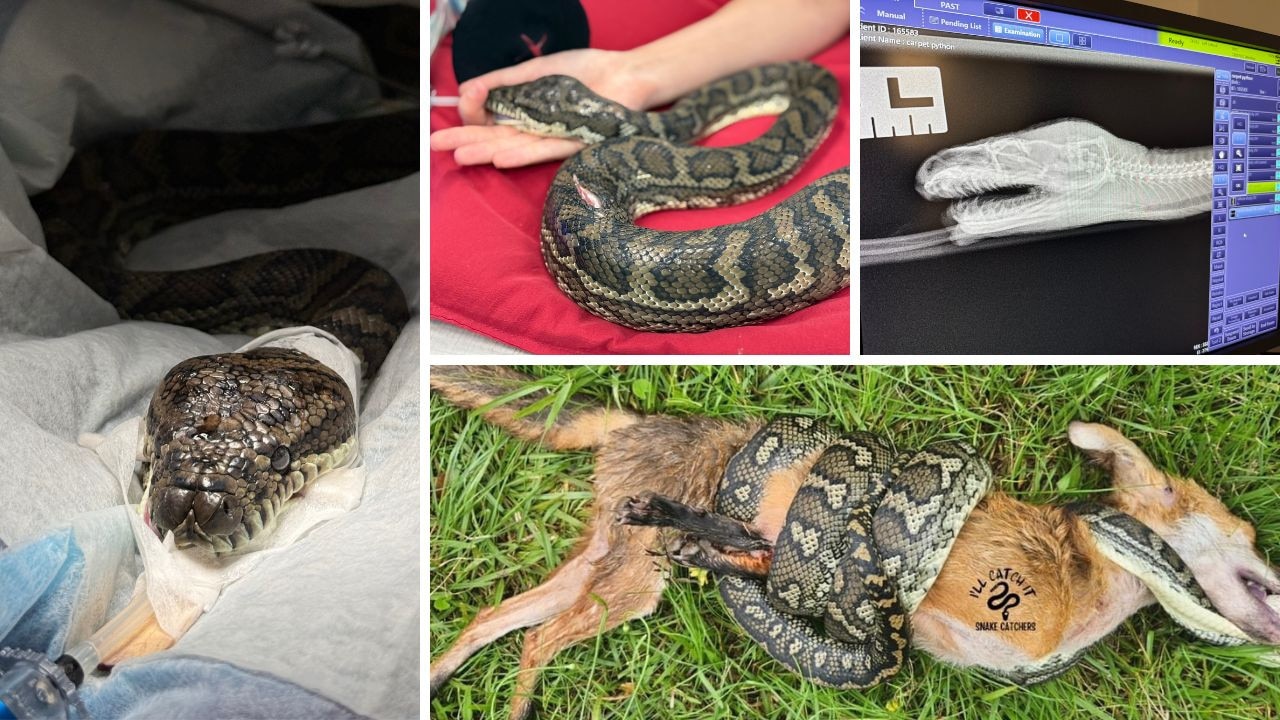North Stradbroke Island koalas ‘fireproofed’ with drone detection
Ancient land practices are combining with drone tech to protect a unique population of koalas from raging bushfires. SEE VIDEO
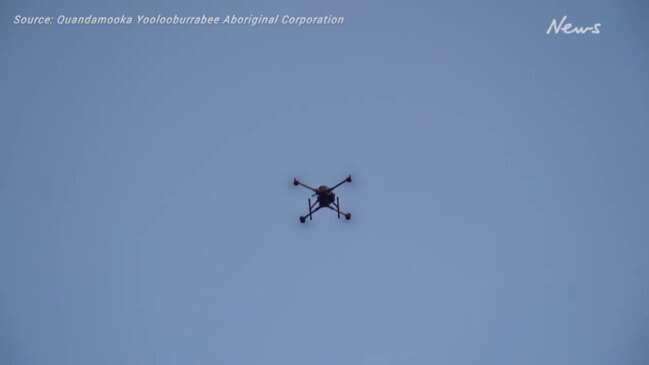
Pets and Wildlife
Don't miss out on the headlines from Pets and Wildlife. Followed categories will be added to My News.
Indigenous rangers on Minjerribah/North Stradbroke Island are combining drones and artificial intelligence with ancient knowledge to save a unique population of koalas from the bushfires that could wipe them out.
The Straddie koalas are Australia’s only naturally occurring island koalas and have been isolated for about 8000 years. They have low levels of chlamydia, a disease devastating many mainland populations.
But Indigenous rangers say the genetically distinct animals have been threatened by intense bushfires over the past decade since the loss of cultural burning, including a 2014 blaze that burned 70 per cent of the island.
Now a $600,000 “Fireproofing Koalas” project led by the Quandamooka Yoolooburrabee Aboriginal Corporation will use ancient Indigenous cultural burning methods to reduce the dangerous fuel loads threatening koalas and other wildlife.
The World Wide Fund for Nature-Australia and WWF-Denmark are collaborating with QYAC on the unique project, with funding support from the Danish not-for-profit QATO Foundation.
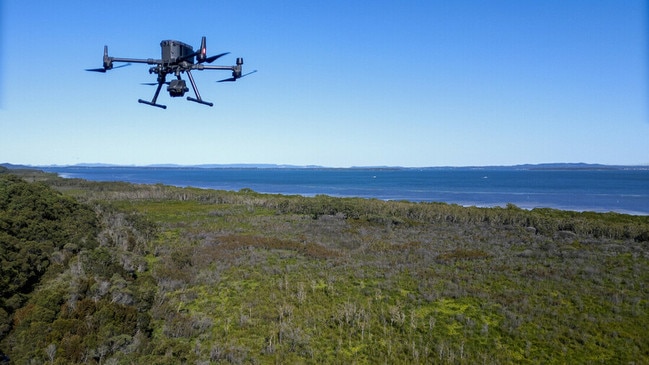
Before fuel reduction burns, QYAC rangers will locate koalas using a thermal imaging drone, equipped with AI to identify koalas. Six Quandamooka rangers recently completed training and are now licensed drone operators.
By knowing koala locations, rangers can plan burns to minimise risk to the iconic marsupials. Precautions include watering down vegetation around koala-occupied trees and even having water bomber aircraft on standby for big operations.
The cultural burning guidelines for koalas developed by QYAC can be utilised across the entire koala range of Eastern Australia.
Kenneth Geipel and Lucas de Paula, co-founders of Danish drone software company Robotto, recently flew out to Minjerribah to work with QYAC to gather data to train the AI to automatically recognise koalas.
Drone flights to locate koalas are critical to QYAC’s plans. Ground searches are slow, labour-intensive and in thick vegetation, even experienced koala spotters can struggle to detect a single koala. Drones are much faster, can cover up to 50ha per hour, and are far more accurate.
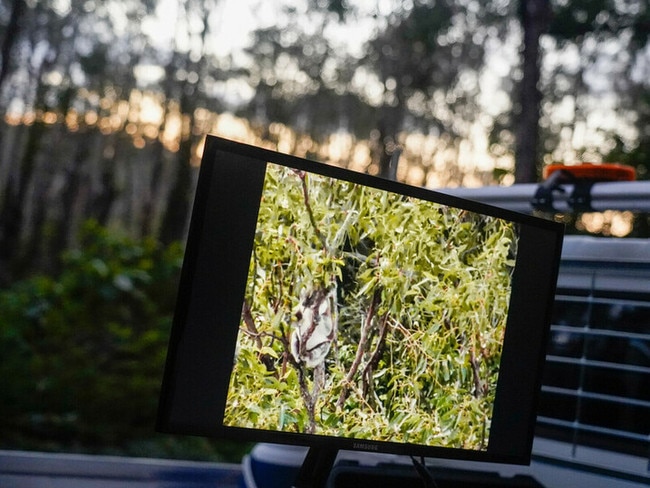
In Minjerribah’s Flinders Swamp, a drone search over two nights located 52 koalas, while a ground search in a nearby area found only one. In addition to protecting koalas, this project will also enable the first comprehensive assessment of koala numbers on the island.
QYAC’s chief drone pilot Ryan Kucirek said: “To me combining cultural fire and koala drone surveys is everything. It enables the best protection for our wildlife. And the burns bring life back into the ground.”
Quandamooka woman Kiah Morgan recently completed cultural fire training and obtained her drone licence.
“The collaboration between technology and traditional owners and looking after the environment is really important,” she said.
“We know the ways of the animals but having this technology will advance our research.
“We need more women out caring for country. So having women doing drone work and the cultural burns is a good step.
“It will bring younger generations in to be more involved.”
Djarra Delaney, a WWF-Australia Indigenous land management specialist and Quandamooka traditional owner, said the project was very exciting.
“We want to see traditional knowledge being used to care for koalas while bringing in cutting edge technology to assist,” he said.
